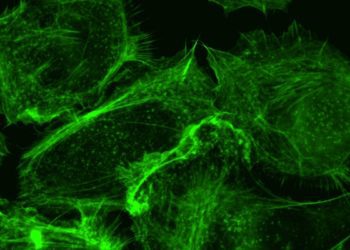Doxycycline post-exposure prophylaxis ineffective for sexually transmitted infections in women
1. In this randomized controlled trial, doxycycline post-exposure prophylaxis (PEP) did not significantly reduce the risk of bacterial sexually transmitted infections (STIs) compared to standard care.
2. Doxycycline testing using hair indicated low protocol adherence by study participants.
Evidence Rating Level: 1 (Excellent)
Study Rundown: The incidence of bacterial STIs is increasing worldwide, prompting investigation into population-wide interventions. Cisgender women are disproportionately impacted by STI complications, such as pelvic inflammatory disease, infertility, and increasing risk of contracting human immunodeficiency virus (HIV). Many preventative methods and partner therapy require cooperation and have not demonstrated effectiveness at the population level. STI risks are especially high among those receiving HIV preexposure prophylaxis (PrEP). PEP doxycycline was previously shown to reduce STI infections among cisgender men and transgender women. This study assessed the effectiveness of doxycycline PEP in preventing STI among cisgender women in Kenya who were receiving HIV PrEP. At 12 months, the doxycycline-PEP group did not have significantly different rates of STIs compared to standard care. Chlamydia was the most common STI, and all Neisseria gonorrhoeae isolates collected were resistant to doxycycline. Although no serious adverse events were attributable to doxycycline, random hair testing suggested that adherence to the doxycycline was low. Overall, these results demonstrated that doxycycline PEP did not confer STI risk reduction over standard care among cisgender women, although this could potentially be due to the low detection of doxycycline among participants.
Click here to read the study in NEJM
Relevant Reading: Postexposure Doxycycline to Prevent Bacterial Sexually Transmitted Infections
In-Depth [randomized controlled trial]: The current study was a randomized, open-label trial to evaluate doxycycline PEP compared to standard care for reducing bacterial STIs among cisgender women in Kenya. Cisgender women aged between 18 and 30, who were not pregnant and were receiving HIV PrEP, were eligible for inclusion. Exclusion criteria included pregnancy, breastfeeding, allergy to tetracycline, recent prolonged antibiotic therapy, or concurrent interacting medications. In total, 449 participants were randomized 1:1 to doxycycline PEP (200mg to be taken within 72 hours of condomless sex) alongside standard care (quarterly STI testing and treatment) or standard care alone. The primary outcome was any incident infection with Chlamydia trachomatis, N. gonorrhoeae, or Treponema pallidum. By 12 months, incident STIs occurred at a rate of 25.1 per 100 person-years in the doxycycline-PEP group and 29.0 per 100 person-years in the standard-care group (relative risk, 0.88; 95% Confidence Interval [CI], 0.60 to 1.29; p=0.51). Chlamydia accounted for the majority of the incident STIs in the doxycycline-PEP group and standard care group (relative risk, 0.73; 95% CI, 0.47 to 1.13). Notably, 100% of the N. gonorrhoeae isolates tested positive for the tetracycline-resistant tet(M) gene. No incident HIV infections occurred during the study, and no serious adverse events were attributable to doxycycline use. Fifty participants in the doxycycline-PEP group were randomly selected for hair testing, and 29.0% of the samples were positive for doxycycline. This translated to an estimate of 44% of participants assigned to the group potentially not having taken doxycycline. Overall, these results suggested that doxycycline PEP did not significantly reduce the risk of bacterial STIs among cisgender women, though there was low adherence.
Image: PD
©2024 2 Minute Medicine, Inc. All rights reserved. No works may be reproduced without expressed written consent from 2 Minute Medicine, Inc. Inquire about licensing here. No article should be construed as medical advice and is not intended as such by the authors or by 2 Minute Medicine, Inc.









